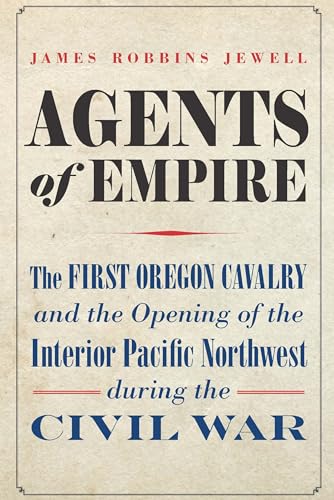James Jewell on “Agents of Empire: The 1st Orgeon Cavalry and the Opening of the Interior Pacific Northwest during the Civil War”
Agents of Empire expands the historiographical scope of Civil War studies to include the war’s intersection with the history of the American West, demonstrating how the war was transcontinental in scope. Much more than a traditional Civil War regimental history, James Robbins Jewell’s work delves into the operational and social conditions under which the First Oregon Cavalry Regiment was formed. In response to ongoing tensions and violent interactions with Native peoples determined to protect their way of life and lands, Colonel George Wright, head of the military’s District of Oregon, asked the governor of Oregon to form a voluntary cavalry unit to protect white settlers and farmers. By using local volunteers, and later two additional regiments of infantry from the region, the federal government was able to draw from the majority of Regular Army troops stationed in the Pacific Northwest, who were eventually sent to fight Confederate forces east of the Mississippi River.
Had the First Oregon Cavalry failed to fulfill its responsibilities, the federal government would have had to recall Union forces from other threatened areas and send them to Oregon and Washington Territory to quell secessionist unrest and Indigenous resistance to land theft, resource appropriation, and murder. The First Oregon Cavalry ensured settlers’ security in the Union’s farthest northwest corner, thereby contributing to the Union cause.
James Robbins Jewell is a professor of history and co-chair of the Social and Behavioral Science Division at North Idaho College. He is the editor of On Duty in the Pacific Northwest during the Civil War: Correspondence and Reminiscences of the First Oregon Cavalry Regiment.
Dr. Jewell is an active scholar, with a primary emphasis on military history. Through his more than two dozen published works he has focused on topics as wide ranging as the role played by Chinese immigrants in the Pacific Northwest economy in the late 1800s and early 1900s, contemporary Native American dance, the Civil War, the American West, WWI, WWII and the First Iraq War.

